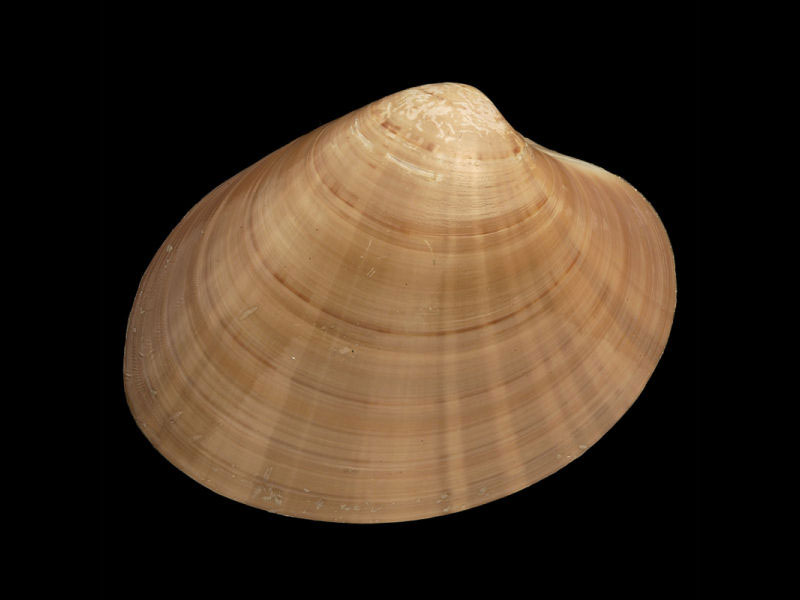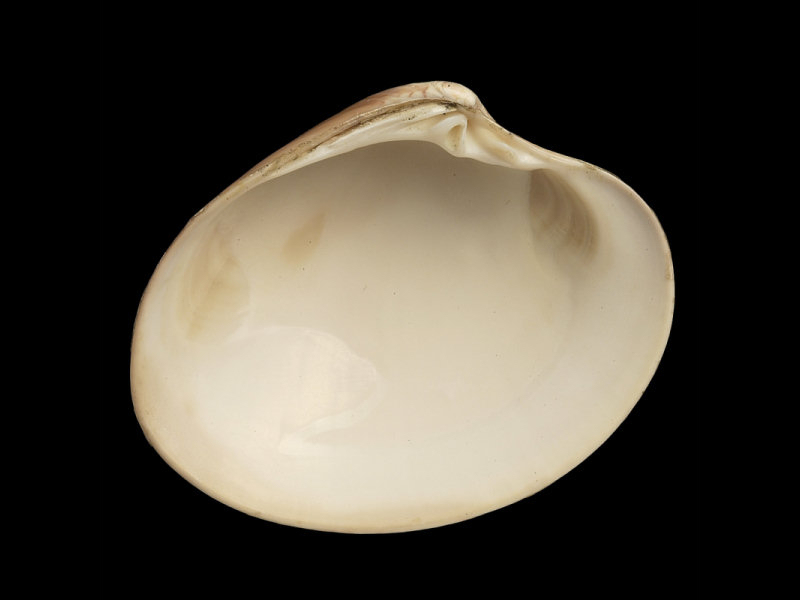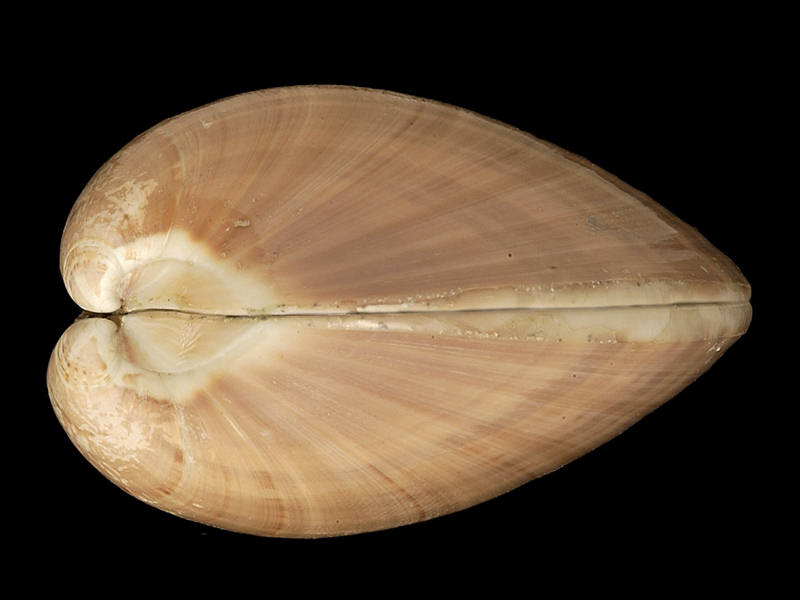Smooth venus (Callista chione)
Distribution data supplied by the Ocean Biodiversity Information System (OBIS). To interrogate UK data visit the NBN Atlas.Map Help
| Researched by | Caroline Farrell | Refereed by | Admin |
| Authority | (Linnaeus, 1758) | ||
| Other common names | - | Synonyms | - |
Summary
Description
Recorded distribution in Britain and Ireland
Recorded from Poole Bay in Dorset, St Mawes, Gerrans Bay, Helford River and Portholland East in Cornwall, St Martin's Flats on the Isles of Scilly and Barmouth Bay in north west Wales.Global distribution
-Habitat
Found in sand, offshore to at least 100 m.Depth range
-Identifying features
- Umbones are prominent and offset towards the anterior of the shell.
- Shell surface is a polished golden or reddish-brown with rays of deeper colour and of varying width radiating from the umbones.
- The shell has numerous fine, concentric lines and clear growth stages.
- Lunule is clearly defined, elongate heart shaped, slightly raised in the centre and red-brown or white.
- Three cardinal teeth are present in each valve, with a large anterior lateral tooth in the left valve fitting into a deep pit on the right valve.
- Inside of shell is white, with the adductor muscle scars and area outside the pallial line highly polished and the remainder being dull-white.
- Pallial sinus broad, with concave borders.
Additional information
Callista chione is also known as the Brown venus. Young specimens may have rows of vividly coloured spots, or three broad white bands, instead of dark streaks radiating from the umbones. Smaller specimens of Callista chione may resemble Chamelea gallina but the shell of Chamelea gallina is triangular and the lunule is deeply depressed and heart-shaped.Listed by
- none -
Bibliography
Gibson, R., Hextall, B. & Rogers, A., 2001. Photographic guide to the sea and seashore life of Britain and north-west Europe. Oxford: Oxford University Press.
Hayward, P., Nelson-Smith, T. & Shields, C. 1996. Collins pocket guide. Sea shore of Britain and northern Europe. London: HarperCollins.
Hayward, P.J. & Ryland, J.S. (ed.) 1995b. Handbook of the marine fauna of North-West Europe. Oxford: Oxford University Press.
Howson, C.M. & Picton, B.E., 1997. The species directory of the marine fauna and flora of the British Isles and surrounding seas. Belfast: Ulster Museum. [Ulster Museum publication, no. 276.]
JNCC (Joint Nature Conservation Committee), 1999. Marine Environment Resource Mapping And Information Database (MERMAID): Marine Nature Conservation Review Survey Database. [on-line] http://www.jncc.gov.uk/mermaid
Sanderson, W.G., 1996. Rare benthic marine flora and fauna in Great Britain: the development of criteria for assessment. Joint Nature Conservation Committee, Peterborough. JNCC Report, no. 240.
Tebble, N., 1976. British Bivalve Seashells. A Handbook for Identification, 2nd ed. Edinburgh: British Museum (Natural History), Her Majesty's Stationary Office.
Datasets
Conchological Society of Great Britain & Ireland, 2023. Mollusc (marine) records for Great Britain and Ireland. Occurrence dataset: https://doi.org/10.15468/aurwcz accessed via GBIF.org on 2024-09-27.
Fenwick, 2018. Aphotomarine. Occurrence dataset http://www.aphotomarine.com/index.html Accessed via NBNAtlas.org on 2018-10-01
NBN (National Biodiversity Network) Atlas. Available from: https://www.nbnatlas.org.
OBIS (Ocean Biodiversity Information System), 2025. Global map of species distribution using gridded data. Available from: Ocean Biogeographic Information System. www.iobis.org. Accessed: 2025-08-02
Citation
This review can be cited as:
Last Updated: 07/06/2007





